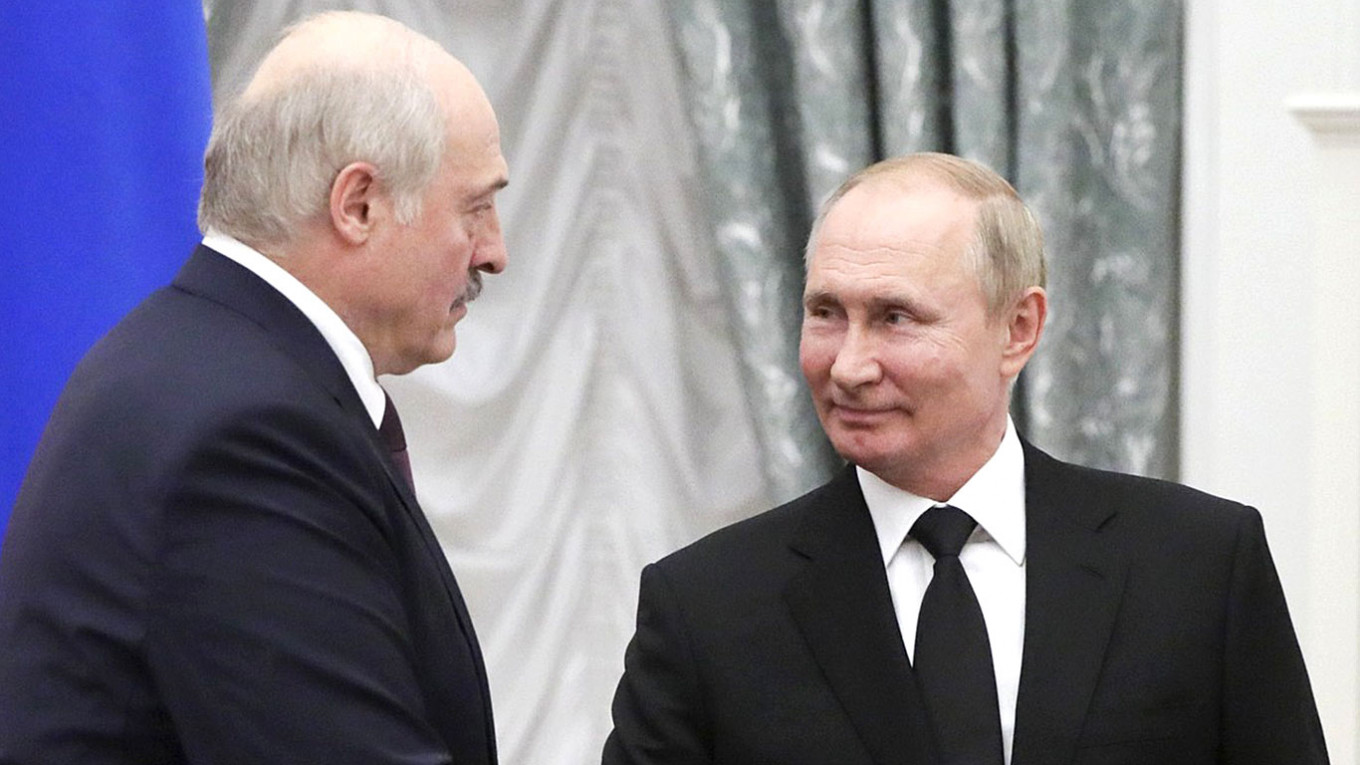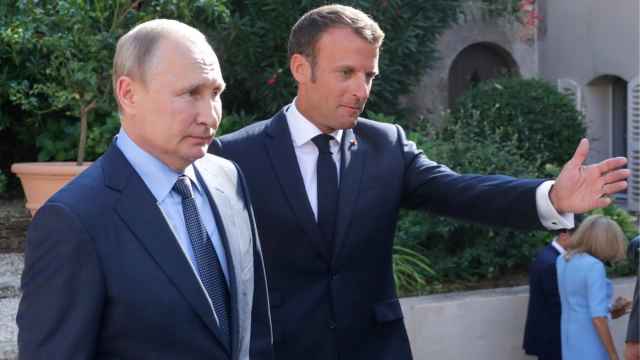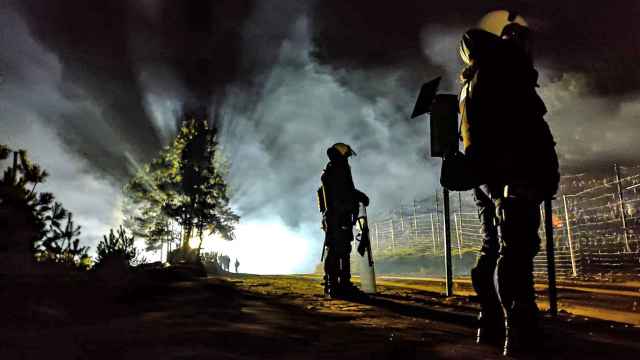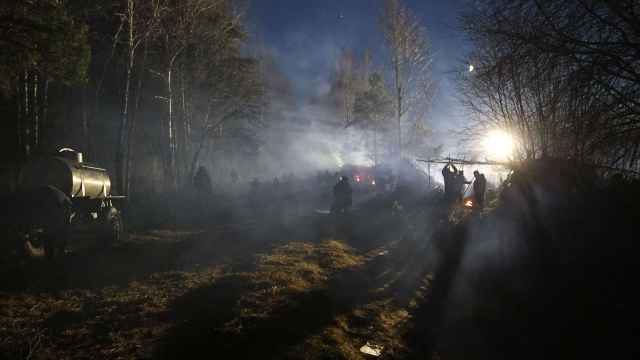Russian President Vladimir Putin and his ally, Belarusian leader Alexander Lukashenko, on Tuesday discussed a migrant stand-off on the border between Poland and Belarus, the Kremlin said.
In a statement, Moscow said the two longtime leaders "exchanged opinions on the situation with refugees" on the border, where a wave of migrants has amassed in recent days.
Polish Prime Minister Mateusz Morawiecki later on Tuesday accused Putin of orchestrating the unprecedented wave of migrants trying to illegally enter Poland from Belarus and threatening to destabilise the European Union.
"This attack which Lukashenko is conducting has its mastermind in Moscow, the mastermind is President Putin," Morawiecki told an emergency session of the Polish parliament.
Western critics have for months accused Lukashenko's regime of luring migrants from the Middle East to Belarus to send them across the border, in retaliation for European sanctions.
Belarus denies the claim and accuses Poland of violating its humanitarian obligations by refusing to allow the migrants in.
Minsk said Putin and Lukashenko discussed the "harsh actions of the Polish side towards peaceful people."
In a statement, Lukashenko's press office said the pair had "noted a particular concern over the deployment of regular Polish troops to the border."
It said the leaders — both in power for more than 20 years — discussed events at the border "in detail."
Earlier on Tuesday, the Kremlin said it was "very carefully watching" the migrant stand-off on the EU's eastern border.
"It is a real problem that concerns Belarus and Poland. We are, of course, very concerned," Putin's spokesman Dmitry Peskov said.
For weeks, Poland has reported an increasing number of migrants — mostly from the Middle East — attempting to cross its border from Belarus.
The crisis came to a head on Monday when hundreds of migrants marched to the border in a bid to cross, where they were blocked by rows of Polish border guards behind razor wire.
Putin is the primary backer of Lukashenko, increasingly isolated after orchestrating a brutal crackdown on the opposition last year.
A Message from The Moscow Times:
Dear readers,
We are facing unprecedented challenges. Russia's Prosecutor General's Office has designated The Moscow Times as an "undesirable" organization, criminalizing our work and putting our staff at risk of prosecution. This follows our earlier unjust labeling as a "foreign agent."
These actions are direct attempts to silence independent journalism in Russia. The authorities claim our work "discredits the decisions of the Russian leadership." We see things differently: we strive to provide accurate, unbiased reporting on Russia.
We, the journalists of The Moscow Times, refuse to be silenced. But to continue our work, we need your help.
Your support, no matter how small, makes a world of difference. If you can, please support us monthly starting from just $2. It's quick to set up, and every contribution makes a significant impact.
By supporting The Moscow Times, you're defending open, independent journalism in the face of repression. Thank you for standing with us.
Remind me later.






